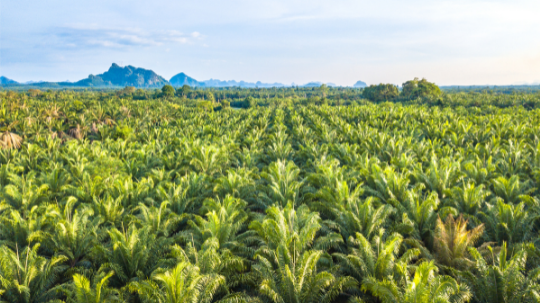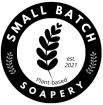
Here at Small Batch Soapery I made the decision to go palm oil-free. This was a decision made for the environment and for the wildlife in the rainforests, as I am a huge animal lover, and being kind to the planet and sustainability is important to me. Many people are not aware of the impact that palm oil production/farming is having on the environment and rainforests.
What is palm oil? Palm oil is an edible vegetable oil that comes from the fruit of oil palm trees, the scientific name is Elaeis guineensis. Two types of oil can be produced; crude palm oil comes from squeezing the fleshy fruit, and palm kernel oil which comes from crushing the kernel, or the stone in the middle of the fruit.
Why is palm oil used so often in soap making? Palm oil helps to create a harder bar in cold process soap along with a creamy lather when combined with coconut oil. Palm oil is also fairly inexpensive, contains vitamins A and E which make it skin-friendly, making it a popular soap-making ingredient.
The problem: Loss of animal habitat. Many of the major palm oil plantations have resulted in the deforestation of tropical forests across Asia, Latin America, and West Africa. These forests are habitats for many endangered species like the Orangutan, pygmy elephant, and Sumatran rhino.
Solution: Reduce use of palm oil OR if using or purchasing palm oil ensure that it is RSPO Certified Palm Oil only. The Roundtable on Sustainable Palm Oil or RSPO was formed in 2004 in response to increasing concerns about the impacts palm oil was having on the environment and on society. The RSPO has a production standard that sets best practices for producing and sourcing palm oil.
I am currently choosing to remain palm oil-free and to use palm oil alternatives such as shea butter, cocoa butter, and/or mango seed butter to help give my bars the hardness factor. These butters are also luxurious and great moisturizers. If you do decide to purchase products with palm oil please ensure it is RSPO Certified.

